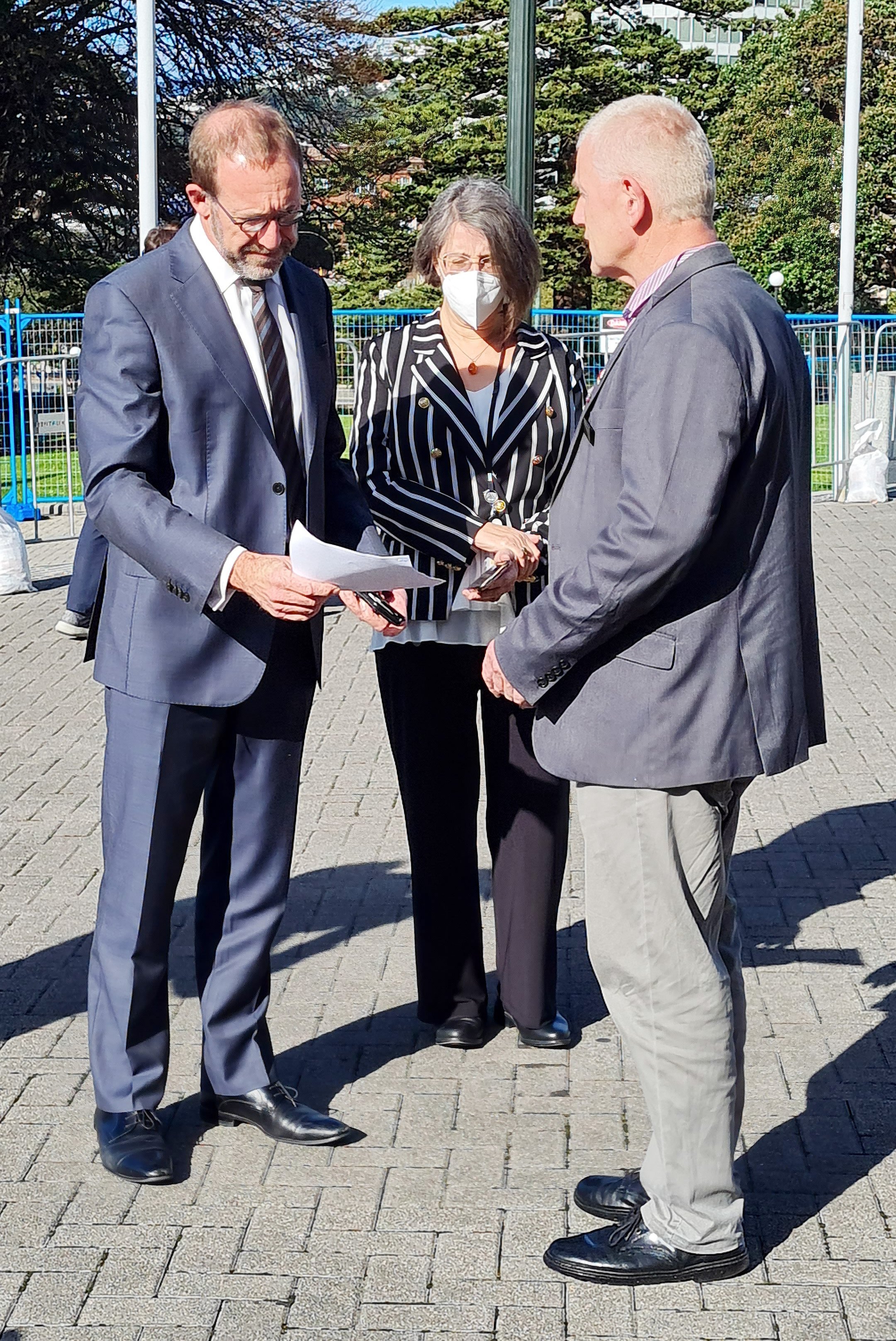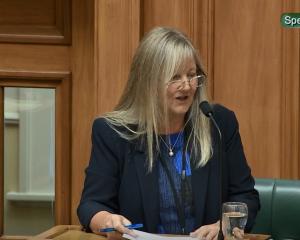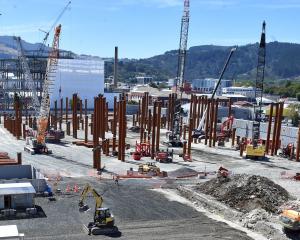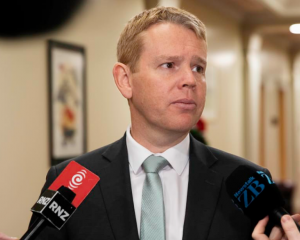

He and his colleagues, to say the least, have been under the pump in recent years, not only processing myriad tests requested by doctors to diagnose patients, but also handling what became the enormous task of processing Covid-19 PCR tests.
All sectors of the medical profession have suffered from burnout during the pandemic inferno and lab techs - arguably the unsung stars of the health sector response - are no exception.
Mr Taylor was expecting a few colleagues to have fallen by the wayside when he received the results of a workforce survey but after learning a fortnight ago that about 200 people had left the profession - about 5% of the workforce - he leapt into action.
Over the weekend the NZIMLS executive decided on a plan to put together a "crisis document" which outlined the staffing issues in the sector, and decided to try to present it to Health Minister Andrew Little on the steps of Parliament on May 12.
This was a somewhat risky tactic as there was no guarantee that Mr Little - or any other MP for that matter - might be in the vicinity, or if they were that they would be inclined to pop down for a natter.
However, before his 5am departure Mr Taylor did confirm a meeting with Associate Health Minister Dr Ayesha Verrall, so he at least knew the trip would have some tangible return.
As it turned out, he and the NZIMLS did rather better ... after the meeting with Dr Verrall, Mr Taylor was tapped on the shoulder and told that not only had Mr Little read his crisis document but that he was available for a chat at lunchtime.
Not only did Mr Taylor get to hand over his report with the TV cameras on, he also got 20 minutes with Mr Little, and an assurance later in the day that Dr Verrall had already put in train the actions required to implement some of the NZIMLS recommendations.
Now, this is not to suggest that every sector group that troops its way to Parliament will get the warm welcome Mr Taylor and his colleagues received - the recently dispersed protest from the front lawn being an obvious example - or get such an immediate response.
But, in general, should you have a reasonable point to make and be prepared to make it in a reasonable way, New Zealand’s politicians are more accessible than you might imagine.
And, lo and behold, there was an announcement about growing the health workforce in Thursday’s Budget.
Although it was probably not as much as Mr Taylor wanted or the sector needed, he can at least say he was listened to, which is the least we can hope for from our politicians.
Everything counts
Dunedin Labour MP Dr David Clark and National Dunedin list MP Michael Woodhouse have been sparring for several weeks now over the destiny of the 2023 census.
On Tuesday, Dr Clark’s Data and Statistics Bill passed its second reading, but not before a split decision in the latest round of what will no doubt be a long-running stoush over the census.
Dr Clark, no doubt well aware Mr Woodhouse was going to raise the subject, attempted a knockout punch early in his speech.
"Let me say, though, to be clear to the House, contrary to what some members on the other side of the House have seemingly convinced themselves, it is my preference that the census goes ahead as planned in 2023."
However Mr Woodhouse, who had already been floored once this week by Covid-19, was quickly back on his feet.
Having already highlighted a proposed amendment which would allow Dr Clark to delay the census if necessary, Mr Woodhouse then anticipated the circumstances in which a statistics minister might exercise that option.
"One of the reasons that shouldn’t be used, but which currently could be, is political expediency," he said.
"[There is] the risk that the Government will oversee yet another debacle, the like of which we saw in 2018, six months out from a general election, that produces the sort of political embarrassment that this Cabinet will want to avoid, which I believe is why they are going to make the decision in July or August rather than wait until much closer to the time."
Stay tuned for the committee stage, when this issue will no doubt add a little spice to an otherwise generally uncontentious law change.
See the sea
You don’t get many ocean views in Alexandra, but local Southland National MP
Joseph Mooney managed to crowbar the Central Otago town in to Tuesday’s debate on what is now the Maritime Powers Act.
It turns out that the Alexandra-based Xerra Earth Observation Institute is building software to use satellite data for maritime security issues, a significant part of a wide-ranging law change.
While noting Central Otago "is a reasonably long way away from the ocean", Mr Mooney underlined how large the Southland electorate is by mentioning it contains parts of both the Catlins and Fiordland, so his constituents are very concerned about maritime wellbeing indeed.












